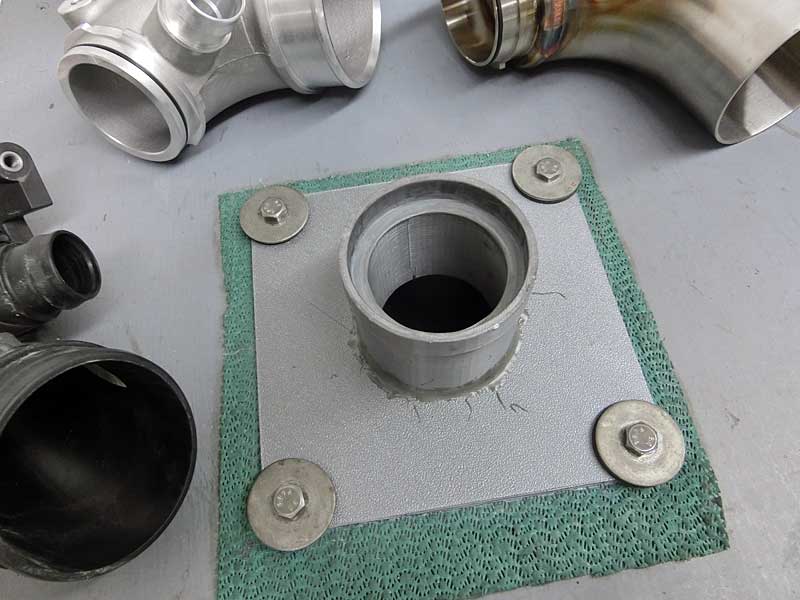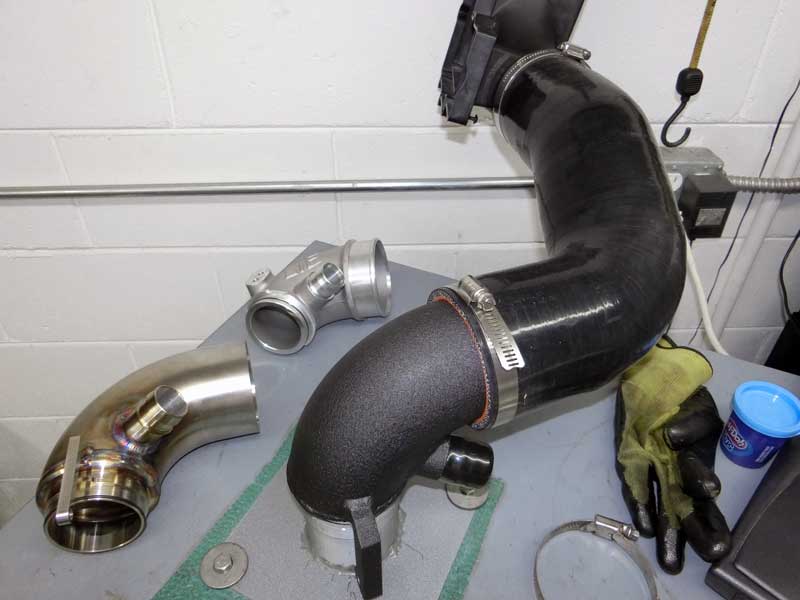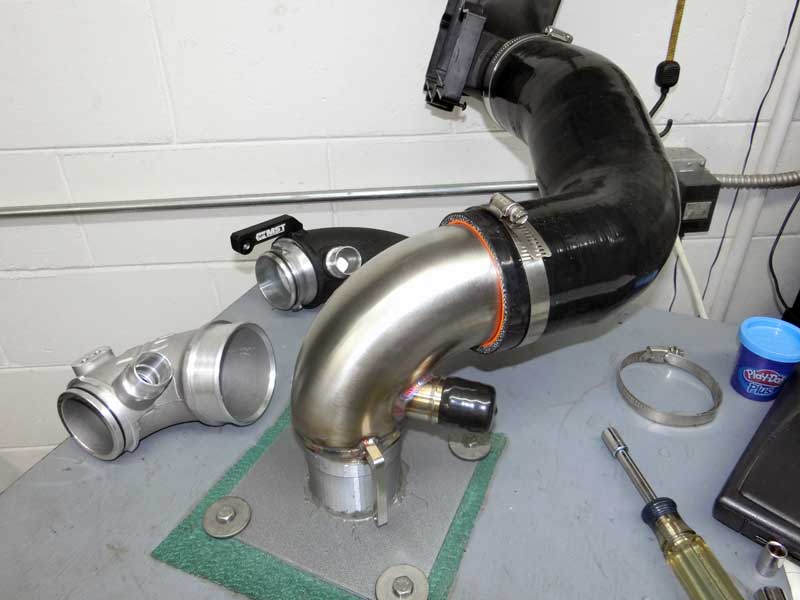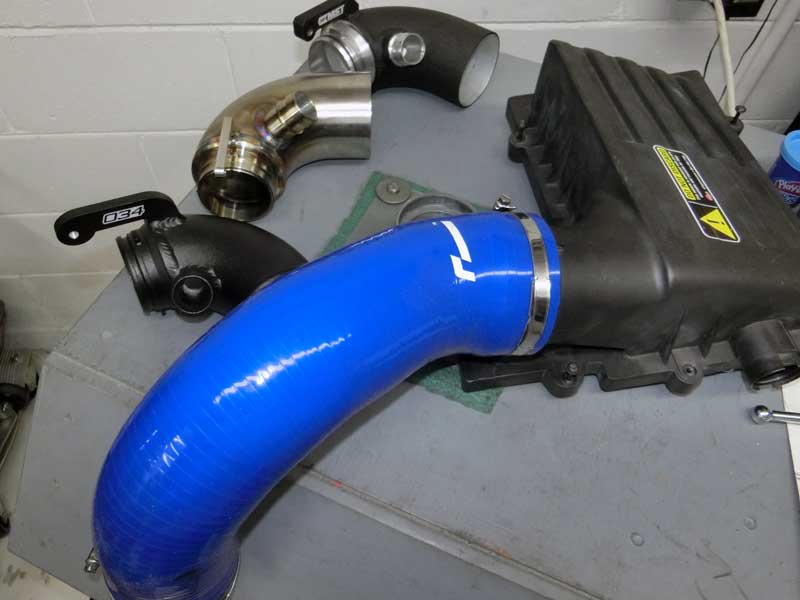Background:
About ten months have passed since performing a test comparing the airflow through a number of inlet elbows. In the interim a few new elbow options have become available so I inquired with the vendors about making available a product for testing. They all agreed to provide a sample of their products and what follows is a repeat of the turbocharger inlet elbow flow bench test.

Setup:
Once again the top half of the stock GTI airbox is used to guide air into the turbo intake hose.
For this test it was necessary to change the inlet hose from the stock accordion to the MST Performance silicone hose. The reason being that the Integrated Engineering and DBV2 elbows have over-sized inlets that do not join with the stock accordion hose.
To even the playing field for the stock fitting 034 inlet elbow a Racingline silicone intake hose was used with the 034 elbow.

The use of silicone hoses in place of the accordion hose is a departure from the setup in the prior test.
All elbows were connected to the flowbench by an adapter that replicates the entry of the IS20/IS38 turbocharger compressor housing.

Prior to measuring the airflow through the inlets the flow bench was checked with a calibration plate. All testing and calibration was done at a depression of 28″ of H2O.

Products:
The test consists of inlet elbows from:
- 034 Motorsport
- Integrated Engineering
- DBV2
- MST (To compare with previous measurements)
Testing:
The first inlet elbow to be tested is the MST Performance product. This is a repeat of prior testing and is done to assess consistency of results.

Result: 410 CFM
This result matches the airflow measured through the MST part during the first inlet elbow test.
The second test is of the DBV2 elbow.

Result: 408 CFM
This result is equal to that of the MST because the margin of error for readings during this test is +/- 3 CFM.
The third test is of the Integrated Engineering elbow.

Result: 410 CFM
The fourth test is of the 034 elbow. For this test the silicone hose is changed from MST Performance to Racingline.

Result: 410 CFM
Conclusion:
Airflow measurements for all of the tested elbows were equal within the margin of error of the test equipment.

Note: The 034 Motorsport elbow was retested using the stock GTI accordion hose.

Result: 400 CFM
The stock accordion hose caused a drop of 10 CFM. Conversely, using the aftermarket Racingline silicone hose increased airflow from 400 to 410 CFM through the 034 inlet elbow.
Next Up:
All three of the new inlet elbows performed equivalent to the MST Performance elbow, a product that had the highest airflow performance during the first series of tests. Such uniform performance from different designs raises the question of whether the adapter that simulates the intake to the IS20/IS38 turbocharger is creating a ceiling on airflow.
A follow on test will be performed using a larger diameter part to connect the inlet elbows to the flow bench.

Any chance of you testing ECS’s “Big Bore” TIP, found at https://bit.ly/2s1l2pO? I had already acquired one before you had informed me that the MST TIP is available separately. Thanks! -Scott
Hey Scott, I probably won’t because it is similar in size to several inlets that have already been tested. It is very likely it will perform in line with the others. If somebody wanted to provide the part and cover shipping I’d test it though.
Jeff — do you mind posting a link to these results to our Shuenk Product Development FB Group? It seems to me that all the aftermarket elbows offer about the same benefit over the OEM baseline. No matter the aftermarket brand, the benefit is the same.
No problem Doug, post link added.